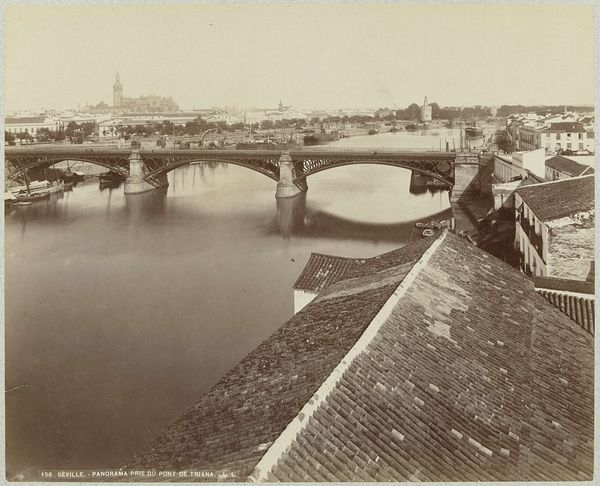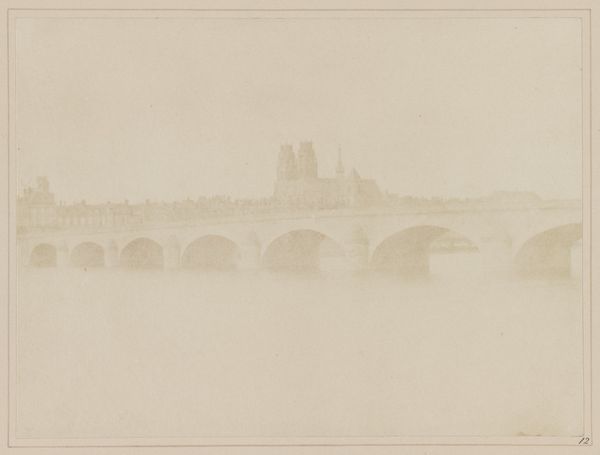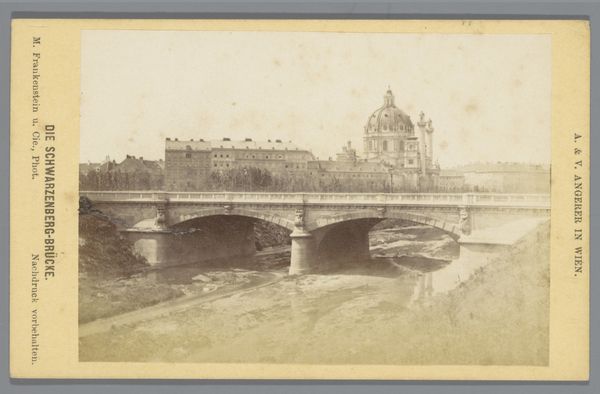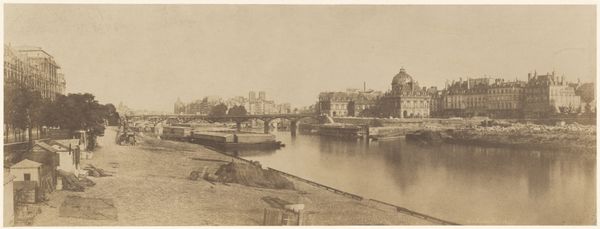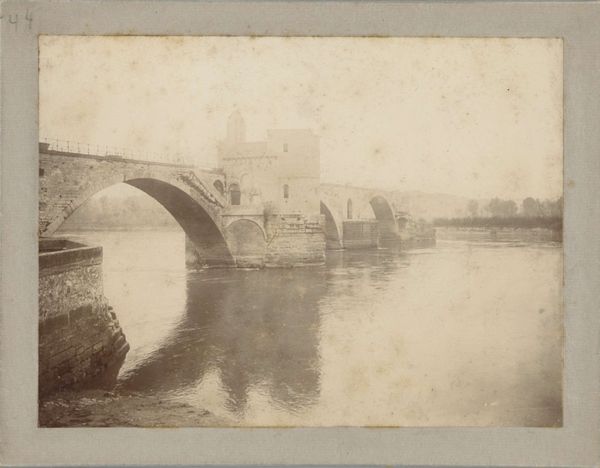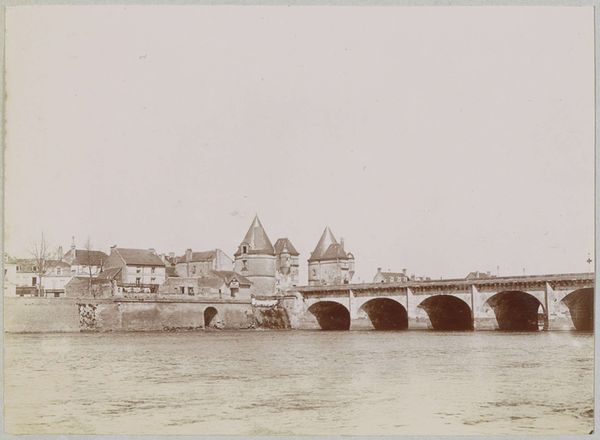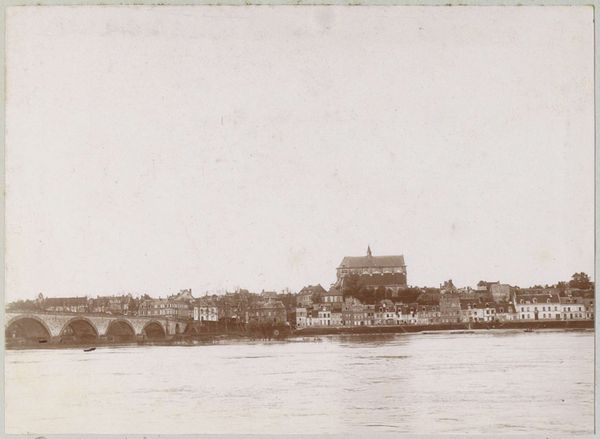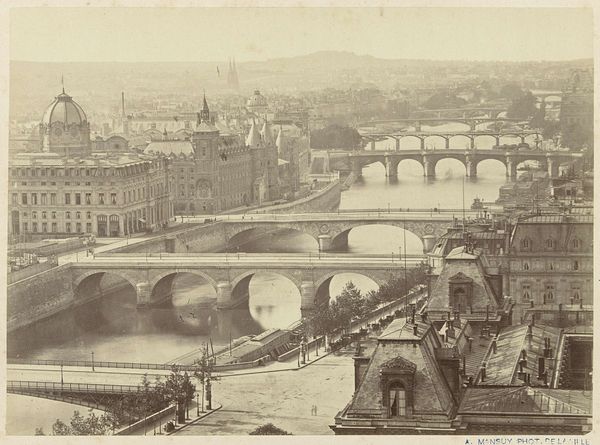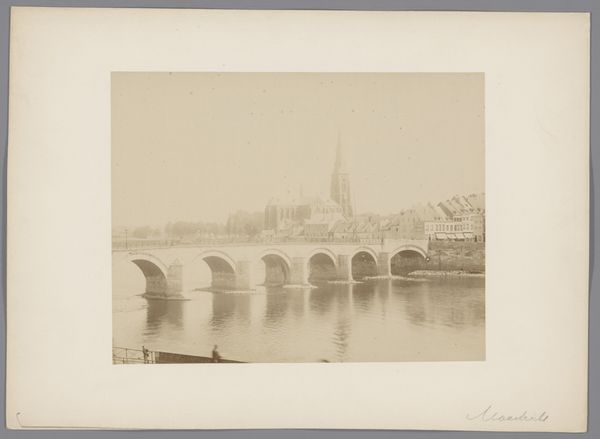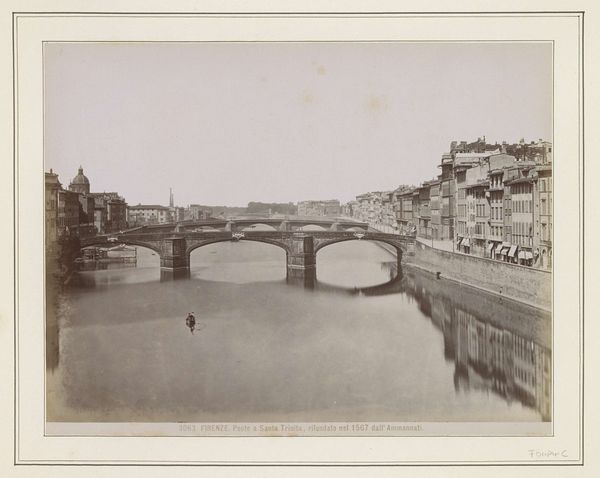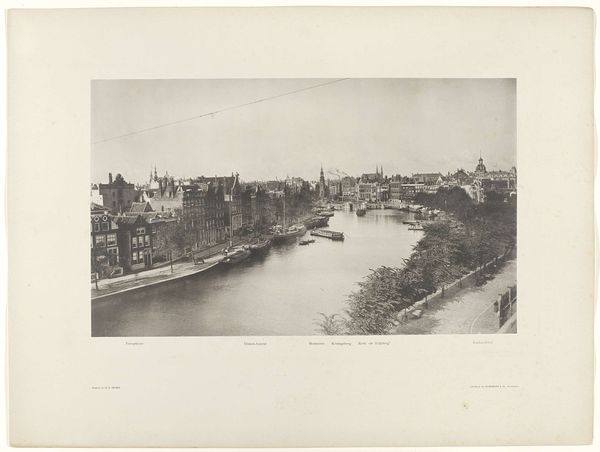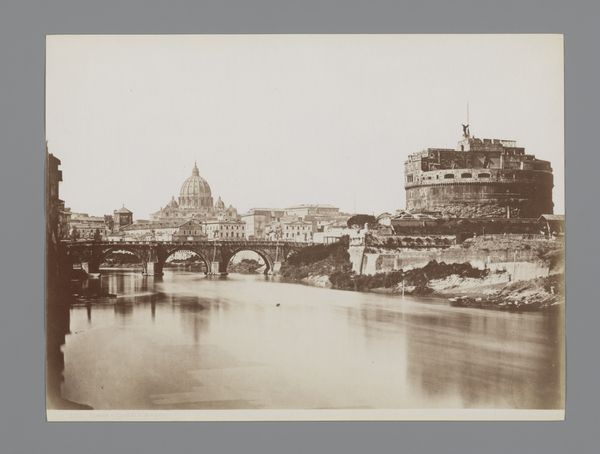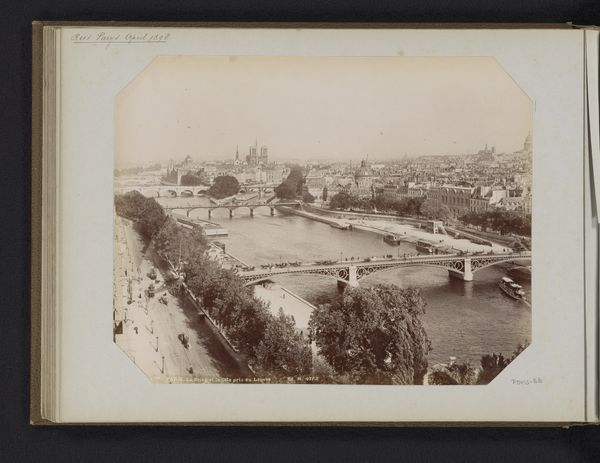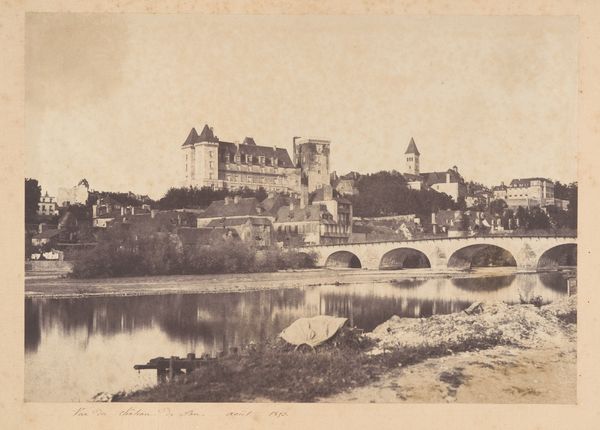
plein-air, daguerreotype, photography, albumen-print
#
plein-air
#
landscape
#
daguerreotype
#
perspective
#
photography
#
romanticism
#
cityscape
#
albumen-print
Dimensions: height 184 mm, width 224 mm
Copyright: Rijks Museum: Open Domain
Editor: Here we have William Henry Fox Talbot's "Bridge at Orléans," created around 1843-1844. It's an albumen print. The hazy effect lends the scene an ethereal, almost dreamlike quality, obscuring some of the finer details. What's your perspective on this? Curator: Indeed. What strikes me immediately is the rigorous composition. Note how the receding arches of the bridge establish a strong perspectival line, drawing the eye toward the distant cityscape. The tonality, though seemingly monochromatic, presents subtle variations, enriching the texture of the print. Consider also the materiality: the albumen print, with its inherent fragility, imbues the scene with a sense of temporal transience. Editor: That's interesting. The softness, I had assumed was from the limitations of early photography. It seems more purposeful when considering temporality. Does the print's inherent fragility support the intent to create a fleeting vision? Curator: Precisely! The soft focus minimizes details to concentrate on the interplay of light and form, the gentle curve of each arch reflected on the water, and the receding distance to create visual harmony and underscore the impression. These techniques were crucial to the photographic compositions that defined their era. How else does the construction contribute to the final work? Editor: I noticed that the photographer's point of view is symmetrical, but positioned at an oblique angle in the pictorial space. That leads my eyes into and across the scene. I see now it seems highly planned in order to have depth. Curator: An excellent point. The oblique angle guides our vision. These visual choices encourage contemplation on temporality, representation, and perspective. Editor: This has shifted my perspective entirely. I now view the apparent ethereal softness, and consider a sense of the timelessness conveyed by the photographer's chosen position and precise angle.
Comments
No comments
Be the first to comment and join the conversation on the ultimate creative platform.
